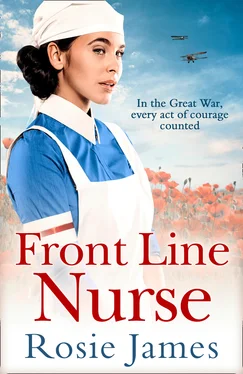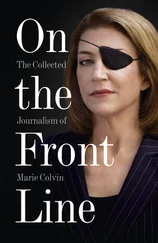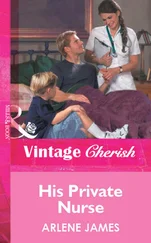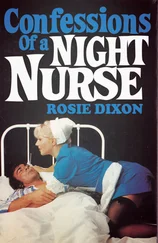‘It was tripe and onions today, with mashed potatoes, and an apple for pudding,’ Miss Kingston said, ‘and while tripe may not be everyone’s first choice we are on a very tight budget, so the children must eat what they are given.’ She smiled briefly. ‘Orphans are not allowed to be fussy, Mr Garfield, but our cook always manages to make everything so tasty that it is unusual for even a scrap of food to be left on the plates. And the staff eat exactly the same.’
Finally, Randolph was shown the playroom and the schoolroom next to it, with the single desks in rows and a large blackboard and easel at the front of the class.
‘Do the children enjoy their lessons with the nuns?’ Randolph enquired. ‘I mean, do you have behavioural problems?’
‘Sometimes,’ Miss Kingston admitted, ‘but orphans are just children, all with difficult backgrounds – well, those we know about. But some of them are just picked up from the street, little strays that no one knows a thing about. So of course they can be naughty, but that’s only to be expected– and I try and talk them out of their bad humour with a hug, and maybe a sweet or two,’ she added.
Following her back into her office, Randolph decided that it was time to come clean.
‘Miss Kingston,’ he said, ‘I have something to say which may come as a surprise, but all things being equal, I am going to buy this building, and will expect it to be run exactly as it is at the moment.’
The woman’s reaction was immediate. ‘Mr Garfield … Mr Garfield, I am not sure what to say, but—’
‘The only thing I would ask you to say, Miss Kingston,’ Randolph interrupted, ‘is that, if it all goes through as I hope it will, would you stay on in your present position here and help me … advise me? My business life is obviously totally different from owning an orphanage, as you will appreciate, and I am going to need expert guidance. Can I dare to hope that you will provide that guidance?’
For a full ten seconds Emma Kingston didn’t utter a word. Then she said simply, ‘It would be my privilege, Mr Garfield. And my utter joy.’
He stood up to leave, then hesitated. ‘It is very sad that no one has come forward to claim Angelina,’ he said, and the superintendent nodded.
‘Indeed it is,’ she said quietly. ‘And … I do have news which it grieves me to tell you, Mr Garfield. But the body of a young woman was found late on Thursday night, about half a mile from here and … it seems that she had quite recently given birth.’
Randolph felt his stomach lurch in horror at this information, yet he was well aware that almost every week in the year it was commonplace for nameless bodies to be swept up on the streets of London. Jacob Mason’s classless, rootless, useless human beings …
Alone at home in his study, Randolph stared out at the cheerless wintry scene, his heart heavy with dread. There was no denying any longer that war with Germany was imminent. The newspapers were full of gloom – Mr Winston Churchill who, in the last couple of years, had demanded the construction of huge battleships to counter Germany’s massive fleet, appeared to be hungry for the conflict to begin as soon as possible. And it seemed that he might get his wish because military exercises could be regularly witnessed on the streets of London and artillery batteries had appeared at the mouth of the Thames. Ready and waiting …
Randolph ran a hand through his hair. The thought of war was hideous for many reasons – not only because of the blood, sweat and tears which would be shed, but the damage to the economy would be enormous, the wealth of the country eroded. Any sea-faring trades would be affected, and that included Garfield’s.
But all those considerations were not what was really making Randolph’s stomach churn with anxiety. It was the fact that Alexander would almost certainly be the age at which he would be expected to join the British army and do his bit to help defend France and Belgium against the enemy. Randolph had kept a close watch on the news over the preceding months and had a shrewd idea as to what that would entail. The thought that his beloved son should come to harm, or suffer an early death, was the worst possible nightmare. If that did happen, Randolph himself would not wish to go on living.
He tried to cheer up. After all, in a couple of days Alexander would be coming home from his boarding school for the Christmas holidays, and despite everything, that was enough to ease Randolph’s frown.
Ever since Alexander and Jacob Mason’s daughter, Honora, had been born, the two families always spent the two main Christmas days together. The Masons had no other children, nor close family members, so it seemed a natural thing to do. The two families took it in turns to host the festivities and this year it was going to be at the Masons’ house. Although, as usual, there would be merely five of them enjoying the festivities the noise and hilarity was always enough for a crowd. From very early days, the two children had always loved being together, and even now that they were both almost 17 years old, nothing had changed. As Jacob kept insisting, they had been a pigeon pair since birth, and he would always make sure that the ubiquitous sprig of mistletoe was there above the front door so that Honora and Alexander could be witnessed showing their special love for each other and receive a round of applause from Jacob and Elizabeth. But Randolph would merely smile. He hoped his friends were not going to be disappointed in their matchmaking hopes. Alexander seemed engrossed in his college life, and although, next year, he was expected to start a business degree course, Randolph had been advised that they should think again as his son showed an exceptional understanding of physics. It appeared that a different future might await him.
For Randolph, Christmas Eve was the occasion he most looked forward to. Ever since he had a acquired the orphanage, he had made a point of visiting the place several times every month, and Christmas Eve was a special date. He and Alexander would go there together and take presents and treats for the staff. Of course, the children always had a bulging stocking to open on Christmas morning, but it was the magic of the day before which touched Randolph the most. To hear his little orphans sing carols to him, and see their faces alive with hope and excitement, always pulled at his heart strings.
Now, glancing at his watch, he saw that it was almost time for his supper to be served, but first, he needed to look through some papers. Opening one of the drawers in his desk, a small brown envelope took his attention. Of course, he knew what it held because he had looked through it many times.
It was a bundle of precious letters that Miss Kingston had sent him some years ago. Letters that Randolph guarded with the same care that he gave to his important financial papers, because every child who had been capable of doing so had written to him telling him what they would like to be when they grew up and left the orphanage.
This exercise had been Miss Kingston’s idea, and she could not have known the pleasure it would give to their benefactor every time he read the careful writing. There were going to be train drivers and policemen, writers and singers – one 8-year-old wanted to be the Archbishop of Canterbury, and several wanted to own their own sweet shops. But the thing was, they all had hopes, and Randolph did his best to help as many of them as he could. After all, he was influential and had already seen several of the 14-year-olds find work, giving them the chance to earn money and develop some self-respect and independence. Last year he had been especially pleased to see one of his youngsters, who’d always been top of the class in arithmetic, secure an apprenticeship with a firm of accountants – business associates of Randolph’s. And despite Jacob Mason’s cynical outlook on orphans, over the last year or two he had agreed to take on three lads to work in his factory and had grudgingly admitted that, so far, he couldn’t complain. But he had also stated that at the first sign of pilfering or wasting time, the culprit would be out on his ear. ‘It’s all in the genes, Randolph,’ Jacob would say complacently. ‘Just mark my words, because I know I’m right. In the end, none of them can possibly amount to much, not with their background.’
Читать дальше












